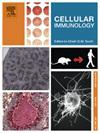MEX3A activates the JAK-STAT pathway to suppress NK cell cytotoxicity and accelerate lung adenocarcinoma progression
IF 2.9
4区 医学
Q2 CELL BIOLOGY
引用次数: 0
Abstract
Background
Therapeutic potential of natural killer (NK) cells is recognized in treating lung adenocarcinoma (LUAD), but impairment of NK cell functions in various cancers weakens anti-tumor capabilities. Uncovering molecular mechanisms is imperative for fortifying NK cells against degradation and for enhancing their cancer-inhibiting functions.
Methods
TCGA-LUAD database complemented by qRT-PCR presented MEX3A expression in LUAD. TIMER was employed to explore relationship between MEX3A levels and NK cell infiltration. In the co-culture system of LUAD and activated NK92 cells, CytoTox 96® assay was applied to gauge NK cell cytotoxicity. ELISA was used to quantify IFN-γ, Perforin, and Granzyme B in the supernatant. Flow cytometry assessed LUAD cell apoptosis. Single-gene enrichment analysis of MEX3A was performed with KEGG database. Western blot examined protein expression in JAK-STAT signaling. In vivo studies validated the role of MEX3A expression on tumorigenesis.
Results
MEX3A was upregulated in LUAD tissue and cells, negatively linked to NK cell infiltration levels. Gene set enrichment analysis pointed to influences of MEX3A expression on dynamics of JAK-STAT signaling. MEX3A overexpression in LUAD cells impaired NK cell cytotoxicity and cell apoptosis, and these effects were reversible by a JAK pathway inhibitor. Mouse studies illustrated that LUAD progression was curbed by MEX3A suppression, alongside an enhanced presence of NK cells within tumor microenvironment.
Conclusion
To synthesize our results, this study identified that MEX3A in LUAD promoted malignancy of the disease by enhancing JAK-STAT signaling, which in turn inhibited cytotoxic capabilities of NK cells, thus providing novel insights for LUAD immunotherapy.
MEX3A激活JAK-STAT通路抑制NK细胞毒性,加速肺腺癌进展
自然杀伤(NK)细胞在治疗肺腺癌(LUAD)方面的治疗潜力是公认的,但NK细胞在各种癌症中的功能损害会削弱抗肿瘤能力。揭示分子机制是加强NK细胞抗降解和增强其抗癌功能的必要条件。方法stcga -LUAD数据库与qRT-PCR相结合显示了MEX3A在LUAD中的表达。采用TIMER检测MEX3A水平与NK细胞浸润的关系。在LUAD和活化的NK92细胞共培养系统中,采用CytoTox 96®检测NK细胞的细胞毒性。ELISA法定量上清液中的IFN-γ、穿孔素和颗粒酶B。流式细胞术检测LUAD细胞凋亡情况。利用KEGG数据库对MEX3A进行单基因富集分析。Western blot检测JAK-STAT信号的蛋白表达。体内研究证实了MEX3A表达在肿瘤发生中的作用。结果smex3a在LUAD组织和细胞中表达上调,与NK细胞浸润水平呈负相关。基因集富集分析指出了MEX3A表达对JAK-STAT信号动力学的影响。LUAD细胞中MEX3A的过表达会损害NK细胞的细胞毒性和细胞凋亡,这些影响可以通过JAK通路抑制剂逆转。小鼠研究表明,抑制MEX3A抑制LUAD的进展,同时增强NK细胞在肿瘤微环境中的存在。综合我们的研究结果,本研究发现LUAD中的MEX3A通过增强JAK-STAT信号通路促进疾病的恶性发展,进而抑制NK细胞的细胞毒性能力,从而为LUAD的免疫治疗提供了新的见解。
本文章由计算机程序翻译,如有差异,请以英文原文为准。
求助全文
约1分钟内获得全文
求助全文
来源期刊

Cellular immunology
生物-免疫学
CiteScore
8.20
自引率
2.30%
发文量
102
审稿时长
30 days
期刊介绍:
Cellular Immunology publishes original investigations concerned with the immunological activities of cells in experimental or clinical situations. The scope of the journal encompasses the broad area of in vitro and in vivo studies of cellular immune responses. Purely clinical descriptive studies are not considered.
Research Areas include:
• Antigen receptor sites
• Autoimmunity
• Delayed-type hypersensitivity or cellular immunity
• Immunologic deficiency states and their reconstitution
• Immunologic surveillance and tumor immunity
• Immunomodulation
• Immunotherapy
• Lymphokines and cytokines
• Nonantibody immunity
• Parasite immunology
• Resistance to intracellular microbial and viral infection
• Thymus and lymphocyte immunobiology
• Transplantation immunology
• Tumor immunity.
 求助内容:
求助内容: 应助结果提醒方式:
应助结果提醒方式:


